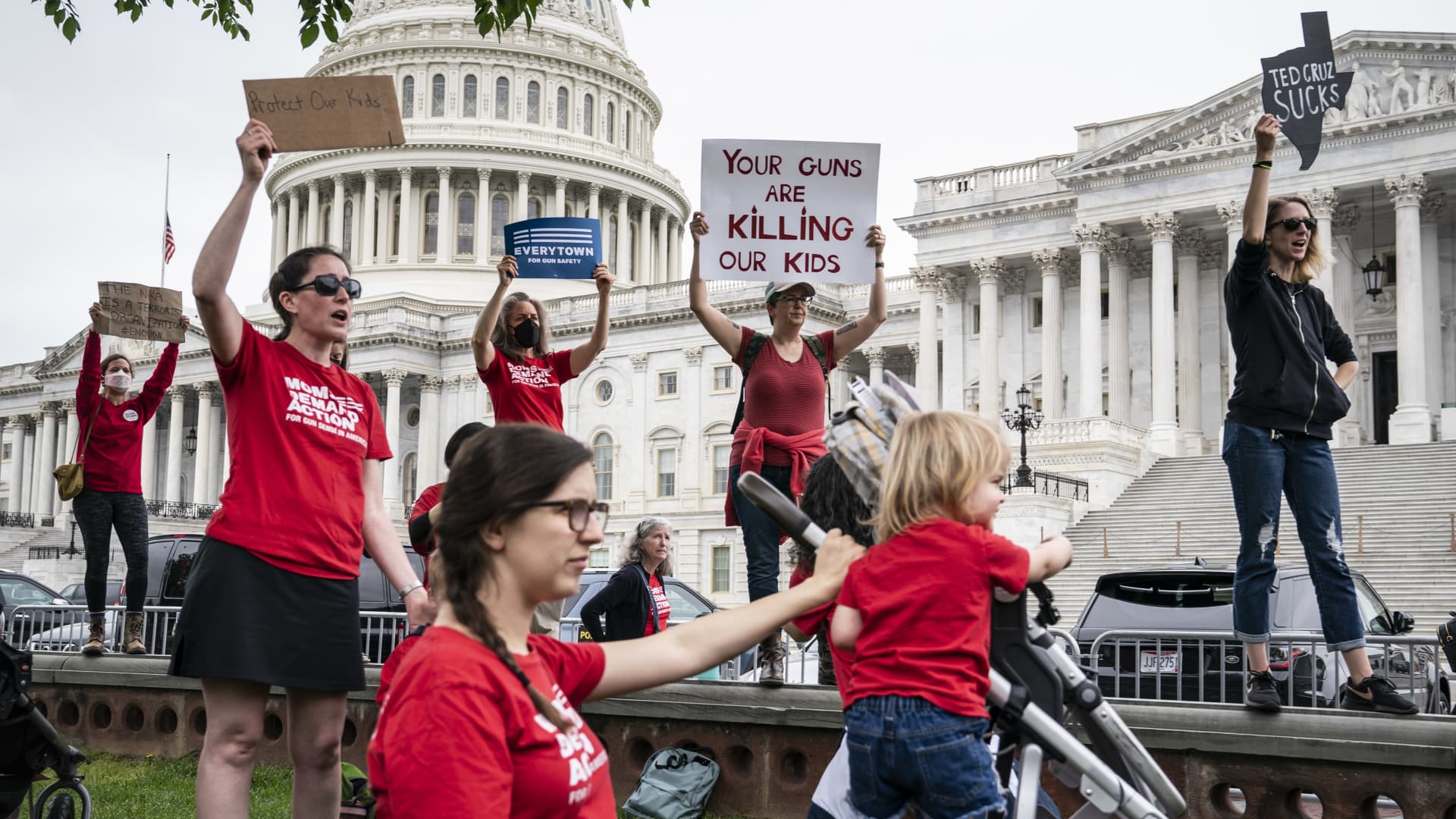FREDERICTON – New Brunswick voters have elected a Liberal majority government, tossing out the incumbent Progressive Conservatives after six years in power and handing the reins to the first woman ever to lead the province.
Liberal Leader Susan Holt is a relative newcomer to the province’s political scene, having won a byelection last year, eight months after she became the first woman to win the leadership of the party.
The Liberals appeared poised to take 31 of 49 seats to the Conservatives’ 16 and the Greens two.
Holt, 47, led the Liberals to victory after a 33-day campaign, thwarting Blaine Higgs’s bid to secure a third term as Tory premier.
The Liberal win marks a strong repudiation of Higgs’s pronounced shift to more socially conservative policies.
Higgs, meanwhile, lost in his riding of Quispamsis. In a speech to supporters in the riding, he confirmed that he would begin a leadership transition process.
As the Liberals secured their majority, Green Party Leader David Coon thanked his supporters and pledged to continue building the party, but he then turned his sights on the premier. “One thing is for sure,” he told a crowd gathered at Dolan’s Pub in Fredericton, “we know that Blaine Higgs is no longer the premier of this province.”
The election race was largely focused on health care and affordability but was notable for the remarkably dissimilar campaign styles of Holt and Higgs. Holt repeatedly promised to bring a balanced approach to governing, pledging a sharp contrast to Higgs’s “one-man show taking New Brunswick to the far right.”
“We need a government that acts as a partner and not as a dictator from one office in Fredericton,” she said in a recent interview with The Canadian Press.
Higgs focused on the high cost of living, promising to lower the provincial harmonized sales tax by two percentage points to 13 per cent — a pledge that will cost the province about $450 million annually.
Holt spent much of the campaign rolling out proposed fixes for a health-care system racked by a doctor shortage, overcrowded emergency rooms and long wait-times. A former business advocate and public servant, she promised to open 30 community health clinics across the province by 2028; remove the provincial sales tax from electricity bills; overhaul mental health services; and impose a three per cent cap on rent increases by 2025.
The 70-year-old Tory leader, a mechanical engineer and former Irving Oil executive, led a low-key campaign, during which he didn’t have any scheduled public events on at least 10 days — and was absent from the second leaders debate on Oct. 9.
Holt missed only two days of campaigning and submitted a 30-page platform with 100 promises, a far heftier document than the Tories’ two-page platform that includes 11 pledges.
When the election was called on Sept. 19, the Conservatives held 25 seats in the 49-seat legislature. The Liberals held 16 seats, the Green Party had three, there was one Independent and four vacancies. At least 25 seats are needed for a majority.
Higgs was hoping to become the first New Brunswick premier to win three consecutive elections since Liberal Frank McKenna won his third straight majority in 1995. But it was clear from the start that Higgs would have to overcome some big obstacles.
On the first day of the campaign, a national survey showed he had the lowest approval rating of any premier in the country. That same morning, Higgs openly mused about how he was perceived by the public, suggesting people had the wrong idea about who he really is.
“I really wish that people could know me outside of politics,” he said, adding that a sunnier disposition might increase his popularity. “I don’t know whether I’ve got to do comedy hour or I’ve got to smile more.”
Still, Higgs had plenty to boast about, including six consecutive balanced budgets, a significant reduction in the province’s debt, income tax cuts and a booming population.
Higgs’s party was elected to govern in 2018, when the Tories formed the province’s first minority government in almost 100 years. In 2020, he called a snap election — marking the first province to go to the polls during the COVID-19 pandemic — and won a slim majority.
Since then, 14 Tory caucus members have stepped down after clashing with the premier, some of them citing what they described as an authoritarian leadership style and a focus on conservative policies that represented a hard shift to the right.
A caucus revolt erupted last year after Higgs announced changes to the gender identity policy in schools. When several Tory lawmakers voted for an external review of the change, Higgs dropped dissenters from cabinet. A bid by some party members to trigger a leadership review went nowhere.
Higgs has also said a Tory government would reject all new applications for supervised drug-consumption sites, renew a legal challenge against the federal carbon pricing scheme and force people into drug treatment if authorities deem they “pose a threat to themselves or others.”
This report by The Canadian Press was first published Oct. 21, 2024.
